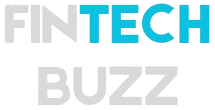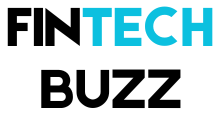Estate planning and legacy management are essential aspects of wealth management, ensuring that assets are transferred smoothly and according to an individual’s wishes. Traditionally, estate planning was a highly personalized service, often requiring extensive legal consultation, and was available only to high-net-worth individuals (HNWIs). However, advancements in technology, particularly in WealthTech, are revolutionizing this field, making estate planning and legacy management more accessible, efficient, and customized.
Here’s a breakdown of how WealthTech is transforming estate planning and legacy management:
1. Streamlining the Estate Planning Process
Traditionally, creating a comprehensive estate plan involves working with lawyers, financial advisors, and tax professionals to ensure assets are passed down effectively. WealthTech platforms are automating and simplifying this process, reducing the need for manual intervention and streamlining steps like drafting wills, trusts, and power of attorney documents.
Key Benefits:
- Efficiency: Automated tools help clients quickly draft estate plans with minimal effort, cutting down the time needed for creating personalized documents.
- Customization: WealthTech platforms allow users to customize their plans based on specific needs, ensuring assets are distributed in line with personal goals.
- Integration: WealthTech tools integrate with other financial accounts, helping clients consolidate all necessary information for a holistic estate plan.
2. Automated Trust and Will Creation
WealthTech has introduced platforms that help individuals automatically generate wills and trusts. These platforms guide users through the process of defining beneficiaries, setting up trusts for children or charity donations, and ensuring that all legal requirements are met.
Key Benefits:
- Accessibility: These tools offer a lower-cost alternative to traditional estate planning, democratizing access to important legacy management resources.
- User-Friendliness: With intuitive interfaces, even those with limited legal knowledge can create a legally valid will or trust.
- Regular Updates: Some platforms offer reminders for updating wills and trusts in response to life changes, ensuring that legacy plans stay current.
3. Tax Optimization for Estate Planning
WealthTech platforms increasingly use sophisticated algorithms to optimize estate plans for tax efficiency. Inheritance and estate taxes can significantly reduce the wealth passed down to heirs, but WealthTech tools can help minimize tax liabilities through strategies such as tax-efficient investment distributions, charitable gifting, and tax-exempt trusts.
Key Benefits:
- Tax Planning: WealthTech platforms offer tax simulations to help individuals understand the potential tax implications of their estate and find ways to reduce liabilities.
- Cross-Platform Data: These platforms can pull data from a variety of sources, such as brokerage accounts, retirement funds, and even insurance policies, to offer a comprehensive tax-saving strategy.
- Generational Wealth Transfer: WealthTech makes it easier to set up tax-advantaged legacy structures, like irrevocable trusts or charitable remainder trusts, which minimize the financial burden on heirs.
4. Trustee and Beneficiary Management
Managing and monitoring the execution of a trust can be complex, especially when dealing with multiple trustees or beneficiaries. WealthTech solutions can provide a more organized and transparent approach to trustee management, helping all parties involved track distributions, manage assets, and ensure that the wishes of the estate planner are carried out.
Key Benefits:
- Real-Time Updates: Beneficiaries can receive real-time updates about the status of their inheritance and distributions, which fosters transparency.
- Clear Documentation: WealthTech platforms provide centralized, secure spaces for storing important documents related to trusts, making them easily accessible to trustees and beneficiaries.
- Multi-Party Coordination: Some platforms facilitate collaboration between multiple trustees, ensuring smoother decision-making and the proper execution of the estate plan.
5. Digital Asset Management in Estate Plans
With the rise of digital assets (cryptocurrency, online accounts, intellectual property, etc.), WealthTech is becoming increasingly important in managing digital legacies. Specialized platforms are now available to ensure that digital assets are protected and passed on according to the estate owner’s wishes.
Key Benefits:
- Digital Estate Planning: WealthTech platforms are now including digital asset management features, helping clients account for assets like cryptocurrency wallets, online businesses, social media profiles, and cloud-based storage.
- Security: These platforms provide secure methods of storing private keys, passwords, and digital account details, ensuring the estate owner’s digital assets are accessible only to the rightful beneficiaries.
- Legal Frameworks for Digital Assets: WealthTech companies are also educating clients about the importance of designating someone to handle their digital assets and incorporating them into their estate plans.
6. Legacy Planning for Charitable Giving
WealthTech platforms can facilitate philanthropic planning by offering tools to set up charitable donations and donor-advised funds (DAFs) as part of an estate plan. Through technology, individuals can seamlessly incorporate charity into their legacy, whether through bequests, creating foundations, or contributing to sustainable causes.
Key Benefits:
- Easy Setup of Charitable Donations: Users can easily allocate a percentage of their estate to charity through automated platforms, specifying conditions and preferences.
- Tracking Donations: WealthTech tools enable individuals to track charitable giving over time and ensure that funds are allocated as planned.
- Impact Measurement: Some platforms offer insights into how donations can make a long-term impact, which can be a key motivator for clients interested in leaving a legacy.
7. Enhanced Security and Data Privacy
Given the sensitive nature of estate planning, WealthTech platforms emphasize enhanced security measures to protect clients’ personal and financial data. Blockchain technology, encryption, and multi-factor authentication are used to secure documents and assets.
Key Benefits:
- Secure Document Storage: Estate planners can securely store their wills, trusts, and other important documents on the platform, accessible only by designated parties.
- Data Privacy Compliance: These platforms ensure compliance with privacy regulations like GDPR, HIPAA, and others, ensuring clients’ data is protected at every stage of the estate planning process.
- Audit Trails: Some platforms maintain a secure log of changes made to estate planning documents, ensuring accountability and transparency.
8. Family Communication and Education
WealthTech platforms also help facilitate communication between family members about estate plans, fostering better understanding and reducing the chances of disputes. Additionally, some platforms provide educational resources to prepare beneficiaries for managing their inheritance.
Key Benefits:
- Family Portal: Some WealthTech platforms offer family portals where all relevant estate planning information is stored in one place, helping family members stay informed.
- Educational Resources: Resources on managing wealth, understanding trusts, and other key financial concepts are available to help heirs make informed decisions.
- Minimizing Disputes: By clarifying intentions and ensuring transparency, WealthTech can help avoid conflicts between heirs and ensure that the estate owner’s wishes are honored.
Conclusion
WealthTech is making estate planning and legacy management more accessible, efficient, and secure, with a growing number of tools designed to automate and optimize the process. As the demand for digital solutions in wealth management continues to rise, WealthTech will likely play an even larger role in shaping how individuals prepare their estates for the future, ensuring a smooth and financially sound legacy for their heirs.
#WealthTech #EstatePlanning #LegacyManagement #DigitalEstatePlanning #FinancialPlanning #TechInFinance


